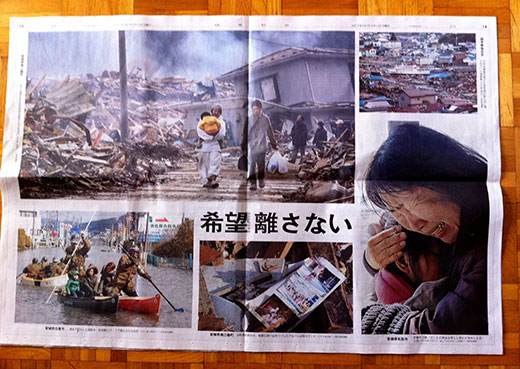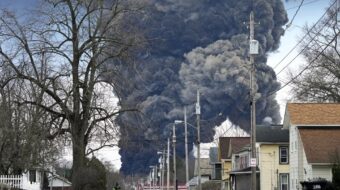
We extend our deepest sympathy and solidarity to the people of Japan in the unfathomable tragedy that has been unfolding since the March 11 earthquake and tsunami hit. It is a natural and human disaster of still unknown proportions. And it has a particularly awful resonance for the Japanese people, who still suffer the terrible effects of the U.S. atomic bombing of Hiroshima and Nagasaki 66 years ago.
Entire towns and villages have been wiped out, swept into the sea. The death toll is now estimated at 10,000 and is expected to go much higher in the areas around Sendai, close to the earthquake’s epicenter. Hundreds of thousands are homeless or without electricity, heat or water. Radioactive material from damaged nuclear power plants has been released into the atmosphere. As we write, news reports warn of an increased possibility of an uncontrolled release of radiation, as efforts to prevent a meltdown of the plants’ nuclear fuel appear to be failing.
Truly, the workers in those plants are heroes, exposing themselves to deadly radiation as they try to prevent a wider nuclear disaster. Already a number of workers have been diagnosed with radiation sickness.
In Indonesia’s 2004 Bande Aceh earthquake and tsunami, an estimated 225,000 people were killed. Unlike Indonesia, Japan is a highly industrialized and technologically advanced country that is known for its earthquake preparedness. It had seawalls in place to protect coastal areas. Yet those seawalls were no match for the giant waves that rolled across, sweeping up and crushing cars, trucks, buildings and people like so many matchsticks. The earthquake-triggered tsunami wiped out the vital cooling system at Fukushima Daiichi Nuclear Power Station and its sister nuclear plants, and backup systems failed, leading to a potential meltdown and radiation disaster.
Unlike Japan’s earthquake, the Bande Aceh quake did not involve nuclear power plants.
Here in the U.S., experts say our wealthy and technologically advanced country is poorly prepared for such natural disasters. Right-wing corporate elements are fighting tooth and nail against environmental protection measures and against spending on science and public infrastructure. And nuclear power plants dot some of the most earthquake-prone parts of our country.
As we watch and read of the tragedy unfolding in Japan our hearts are heavy. As Americans, whose government dropped the atom bomb on Japanese civilians in 1945, we feel a special responsibility to express our solidarity with the people of Japan today, and to look for ways to extend material aid as well.
We also think about the wider implications of this tragedy.
It raises deep questions about humanity’s relationship with the planet we live on. Do we respect the power of nature, or do we trample heedlessly over it? Do we throw whatever we want into the air, water and soil and think nothing will change? Do we tamper with natural forces and think we are in control?
Do we put people and nature before profits? It’s up to us, the people, to decide.
Photo: Photos displayed in Japanese daily newspaper Yomiuri Shimbun, March 13. pinboke_planet CC 2.0












Comments